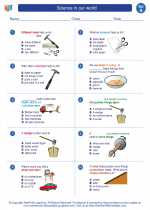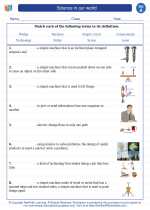Parasites
A parasite is an organism that lives on or inside another organism (the host) and benefits at the expense of the host. There are different types of parasites, including protozoa, helminths, and ectoparasites.
Types of Parasites
- Protozoa: Single-celled organisms that can cause diseases such as malaria and giardiasis.
- Helminths: Parasitic worms that can infect the intestines, blood, or other tissues of the host. Examples include tapeworms, roundworms, and flukes.
- Ectoparasites: Parasites that live on the outer surface of the host's body. Examples include ticks, lice, and fleas.
Life Cycle of Parasites
Parasites have complex life cycles that often involve multiple hosts. For example, the life cycle of the malaria parasite involves both humans and mosquitoes. Understanding the life cycle of a parasite is important for controlling and preventing infections.
Effects of Parasites on Hosts
Parasites can cause a range of health problems in their hosts, including malnutrition, anemia, and organ damage. Some parasites can also transmit diseases to humans and animals.
Preventing Parasitic Infections
Preventive measures against parasitic infections include practicing good hygiene, avoiding contaminated water and food, and using insect repellent to prevent insect bites. In addition, regular deworming of pets and livestock can help prevent the spread of parasitic infections.
Study Guide
- What are the three main types of parasites?
- Describe the life cycle of a parasite.
- What are some health problems that parasites can cause in their hosts?
- What are some preventive measures against parasitic infections?
- Why is understanding the life cycle of a parasite important?
[Parasites] Related Worksheets and Study Guides:
.◂Science Worksheets and Study Guides First Grade. Science in our world

 Worksheet/Answer key
Worksheet/Answer key
 Worksheet/Answer key
Worksheet/Answer key
 Worksheet/Answer key
Worksheet/Answer key
 Vocabulary/Answer key
Vocabulary/Answer key
 Vocabulary/Answer key
Vocabulary/Answer key
